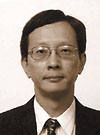| Soap Box How Do You Define ‘Quality’? By Binseng Wang  If you ask five persons for their “concept” of quality, you most likely will get six different definitions. Conversely, everyone has a concept of what quality consists of but has difficulty defining that concept. As some would say, “I cannot define it, but I know what it is when I see it.” As professionals required to continuously improve quality and sometimes be responsible for leading quality activities, how are we suppose to operate if we do not have a user-friendly definition of quality? If you ask five persons for their “concept” of quality, you most likely will get six different definitions. Conversely, everyone has a concept of what quality consists of but has difficulty defining that concept. As some would say, “I cannot define it, but I know what it is when I see it.” As professionals required to continuously improve quality and sometimes be responsible for leading quality activities, how are we suppose to operate if we do not have a user-friendly definition of quality?
Dictionaries are not helpful. Aside from various definitions irrelevant to this discussion, the closest I have found is “a degree or grade of excellence or worth.” This is a little confusing, as the definition of excellence is “the quality of being excellent.” The International Organization for Standardization (ISO) — as well as the American National Standards Institute (ANSI) and the American Society for Quality (ASQ) — uses the following definition: “the degree to which a set of inherent characteristics [i.e., distinguishing features] fulfills requirements [i.e., needs or expectations that are stated, generally implied or obligatory]” (ISO 9000:2000). The Joint Commission for Accreditation of Healthcare Organizations (JCAHO) also does not provide a definition for quality in its standards. It does, however, define “quality of care” as “the degree to which health services for individuals and populations increase the likelihood of desired health outcomes and are consistent with current professional knowledge.” Frankly, I struggle with these definitions in my daily work. I do not mean to question the wisdom and competency of the people working in the aforementioned organizations, much less challenge well-respected management gurus like W. Edwards Deming, Joseph M. Juran and others. I just find it difficult to use those definitions to explain to my colleagues what they are expected to do. It is even more frustrating when someone shows me low-quality products or services provided by some ISO 9001-registered companies or when I learn about poor care delivered by JCAHO-accredited health organizations. You probably have the same experience when shopping for a car. Although most car manufacturers are registered for QS 9001 (a standard similar to ISO 9001 but specially developed for automotive industry), their cars clearly have distinct levels of quality. A closer examination of quality standards shows that those standards actually only specify the minimum requirements that an organization needs to meet in order to be accredited or registered. Therefore, not all the accredited or registered organizations are equal in quality. It is really up to each individual or organization to exceed those requirements in their quest for quality or excellence. In other words, you do not arrive directly in either heaven or hell after you die; you actually ascend or descend a level at a time, until you reach the zenith or the inferno, depending on your beliefs. (It’s been suggested that Asians, with the traditional belief in multiple life cycles, easily absorb quality principles!) Since 1995, JCAHO has changed the focus of its standards for hospitals to emphasize quality improvement at all levels. ISO also added quality improvement to its 2000 version of its 9000 series quality standards, particularly in the ISO 9004:2000 guidelines. Perhaps these organizations eventually will provide an easier definition of quality. Until then, each one of us has to craft his or her own working definition. I offer the following for your consideration: “Quality is a state of mind in which one commits to perpetual improvement in every aspect of what is provided to others — be they customers, vendors, friends, relatives and more — above and beyond what they need or expect.” I hope you come up with a much better definition than mine and share it with the rest of us. Binseng Wang, Sc.D., CCE, is the national quality director for Mediq/PRN Life Support Services in Pennsauken, N.J. -- |